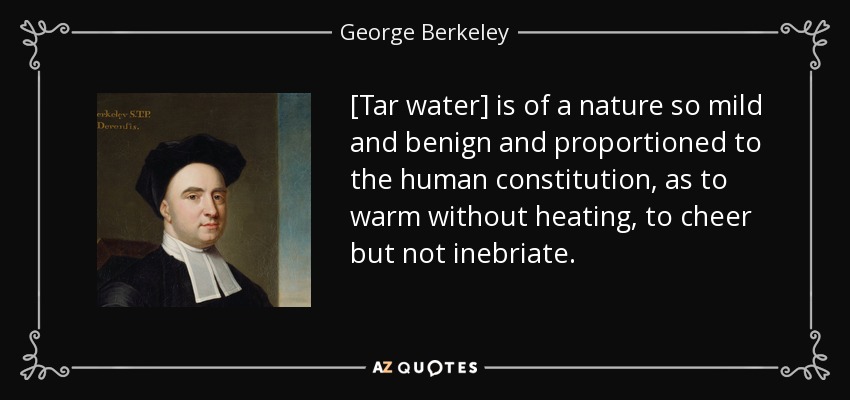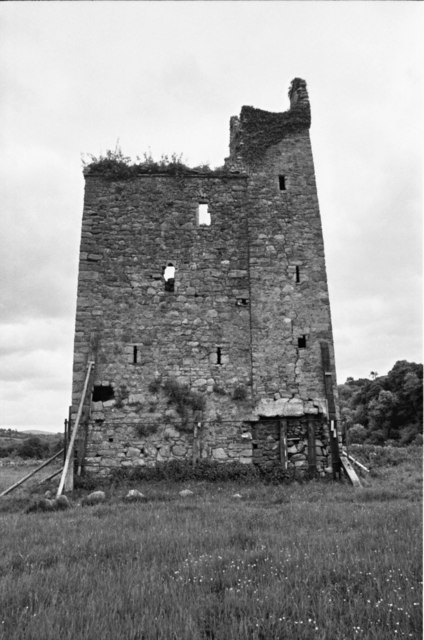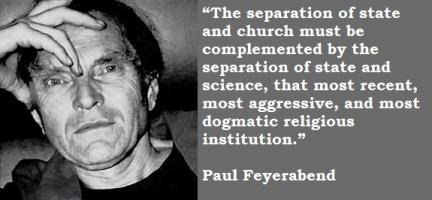Assign
Honor
分配荣誉
Fēnpèi róngyù
名誉を授ける
Meiyo o sazukeru
ps 29
Philosophy is the study of truth for wisdom with knowledge.
Knowledge is acquired for judgment in choice for the social college.
Those without wisdom regard the familiar as accountable to experience.
Skepticism for them is for those who are too skeptical or serious.
Rationalism has been viewed as too Aristotelian.
Organization was seen as too thought based to allow for feeling.
Science with induction by the Baconian method
had engendered competition for direction to where empire was headed.
Aristotle had argued that slavery was a condition for the weak.
The bold had to be strong enough to defend the claim to the freedom humans seek.
Slavery was presented as a temporary form for contractual relations
but the temporary was extended into indefinite social stations.
The indefinite was an extension of the indeterminate into the infinite.
The legislative authority became the determinate for the discriminant.
The immaterial was presented to oppose excess in mechanical determinism.
It was not intended to indefinitely pretend to the legislative prism for their decisions.
The superior principle for reason was that to which we were directed to agree.
Agreement with reason allowed for individual participation in the land for the free.
There is a place for the case of the indeterminate in the determinable.
This is the space in mind where choice is discernible.
How much force is right for success in the world?
Too much results in liability for abuse by the brutish earl.
Too little produces no benefit whether the result is a determinate or indeterminate swirl.
Goodness resides in the range of what works without damage.
Self-determination sets a course that one's self can manage.
How is freedom regulated at the individual level?
Perception looks for profit with perspective to bevel.
Assign honor to function.
Practical worth is the social unction
with a personal conjunction.
Assign economy to authority.
Respect the public as the whole majority.
Ascribe the properties of energy to power
and the creation of power as the cause for the tower.
Energy is the ability for a system to work.
Flip a switch and the power runs through a circuit kirk.
The machine can operate in accord with design.
When the power runs the machine works fine.
A storm system crackles with stacks that the energy packs.
Lightning flashes. The flash cracks.
Energy is transferred from the cloud to the ground
with a boom that shakes all that is around.
Energy can be transferred, converted and measured.
Whether it is transferred or converted, it conserves the same treasure.
The constraints for property develop the forms for design.
Design allows for variation in expansion, form and function in time.
Growth in populations can be exponential to preserve existence.
Exponents provide proportions for this growth to preserve subsistence.
Exponents express proportion in size.
These powers also describe variance in curves as lines.
Beauty and courage create the gently curving line as twilight fades.
Time in this light plays a magical serenade.
Faith shines high and bright in the night sky.
The dog releases his breath with a mighty sigh.
The sides of the triangle are equal in length.
The hunter pursues the prey with the dog as his strength.
Being is the beginning of soul's self control.
Soul is the mirror for life that extols.
Living is the first right for all in the law.
Let wisdom reign to correct human flaw.
A person transcends personal life as an emergent thing.
Uniqueness in being makes identification ring.
Spirit is the realm for human or divine energy.
Matter is held together as a bond for material memory.
The chief rule for stately verity in variety
is a kindly profit for self and society.
The forest emerges as a sprite takes flight from the trees.
The flash of light shows the pillars for these.
The voice of the sky is gruff upon the waters
when the thunder rumbles after the lightning honors
the concert of scholars.
The sound resounds through the air.
The waves roll and echo as though they had no care.
The sound has power
that often precedes a shower.
The flash of lightning shows
wonder in darkness before thunder rolls.
Light sees instant weightless motion
as spirit with speed, the notation of notion.
Spirit sings sound
as the crack pounds the ground
to break the back of the somber stillness
behind the roaring rain for the thrill of this.
The voice of thunder rumbles
across the sky as the wind tumbles
under the clouds dark jumble.
Hills are moved by walls of water.
Shelter protects your sons and daughters.
The mountain is consumed by the creation of clouds.
That which had been seen is no longer allowed.
The voice of power is strong.
She sings loud and long
for the splendor of lightning to right her wrongs.
Her song breaks the heart
of the redwood, the end of the start
that could not be broken apart.
All are crying “Have mercy”
on this temple of soul made from trees.
The power of creation
permeates life in time until cessation.
Fresh water is supplied for storage.
Grains are grown for our porridge.
The air has been cleansed for breath in life.
The cleansing reduces the incidence of strife.
Plants grow strong for consumption.
Consumption assures us of gumption.
Love is as pleasing as warmth from the sun.
Cooking and singing are actions that are important and fun.
Life lives with gratitude for providence.
Providence preserves essence with confidence.
Courage passes confidence in the power of the storm.
Power ravished beauty as a functional norm.
Faith did not stop beauty from her own ravishment.
The ravishment did not result in her banishment.
Arigato, Momma Cat.
This was just the result of that.
29 Afferte Domino
1 Ascribe to the Lord, you gods, *
ascribe to the Lord glory and strength.
2 Ascribe to the Lord the glory due his Name; *
worship the Lord in the beauty of holiness.
3 The voice of the Lord is upon the waters;
the God of glory thunders; *
the Lord is upon the mighty waters.
4 The voice of the Lord is a powerful voice; *
the voice of the Lord is a voice of splendor.
5 The voice of the Lord breaks the cedar trees; *
the Lord breaks the cedars of Lebanon;
6 He makes Lebanon skip like a calf, *
and Mount Hermon like a young wild ox.
7 The voice of the Lord splits the flames of fire;
the voice of the Lord shakes the wilderness; *
the Lord shakes the wilderness of Kadesh.
8 The voice of the Lord makes the oak trees writhe *
and strips the forests bare.
9 And in the temple of the Lord *
all are crying, "Glory!"
10 The Lord sits enthroned above the flood; *
the Lord sits enthroned as King for evermore.
11 The Lord shall give strength to his people; *
the Lord shall give his people the blessing of peace.
1.13.19
Isa. 43:2
I will be with you when you pass through the waters.
The rivers will not overwhelm you.
You will not be burned when you walk through fire.
The flame will not consume you.
Acts 8:15-17
The Spirit had not come on any of those who had been baptized in Samaria. They had only been baptized in the name of the Lord Jesus. Peter and John went down and prayed for them that they might receive it. The two laid their hands on them and they received the Holy Spirit.
Luke 3:21-22
When all the people were baptized, Jesus had also been baptized and was praying. Heaven opened and the Holy Spirit descended in bodily form like a dove. A voice came from heaven, 'You are my Son, the Beloved. I am well pleased with you.'
Tar Water
Immaterialism was used as a counter to the materialist aspect of empiricism. It wasn't intended as a rejection, so much as a refutation of error in the theory.
When theory is accepted based on the personal or social authority of the person who proposed the theory, it hasn't got the value of critical evaluation.
Berkeley made sure that he challenged the key ideas for the philosophy in order to bring the evaluation of the system down to the perspective of individual perception.
Berkeley was categorized as an empiricist because he used disagreement as a means to analyze the understanding of the principles of human knowledge.
His argument was an exercise in sophistry insofar as his rhetoric disagreed with the most plausible parts of the theory in order to leave the direct perception that is closest to the conceptual analysis as the derived value.
His work on Siris was an exercise in the critical evaluation of what Pliny had to say about tar water. It stands as an application of philosophy to a marketable product. He wrote another work called Further
Thoughts on Tar-water.
Tar water is not a popular medicinal product. It is used by veternarians as an anticeptic for open sores and to reduce inflammation in joint pain in the animals that are treated. The British colonies had many pine trees. Pine tar probably reduces inflammation in humans also, but it has a bad taste.
Native Americans used pine resin to treat rheumatism. It has anti-inflammatory properties. The resin acts to remove the joint inflammation caused by rheumatism. The reduction of inflammation helps to restore movement and to alleviate pain.
Pine Resin
"Physicians in colonial America also recommended tar water, or ground pine resin mixed with water, as a remedy for ulcers, smallpox, and syphilis. These are traditional holistic medicinal uses for pine resin that have not, as of yet, been confirmed by modern science as effective, but that does not mean there is no basis for some of the claims made about resin's anti-inflammatory properties."
Pine resin has other uses. It is used as a sealant, glue and varnish. It is distilled into rosin. Rosin is used to promote a better grip between objects. It is also distilled into oil of turpentine. This is used as a solvent and as a paint thinner.
Pine tar as a history as a wood preservative. It is a wood sealant in maritime use. It is used in roof construction and maintenance, in soaps, in the treatment of carbuncles and skin diseases such as psoriasis, eczema and rosacea. Major League Baseball allows pine tar to enhance the grip of a hitter's bat.
This story describes the use of the substance as an infraction by pitchers in MLB.
Pitchers for Pine Tar
"Once again, many people don't care that Pineda was using pine tar and there is a growing movement to make the substance legal for pitchers."
Pine tar is an effective antiseptic and disinfectant when applied to cuts on the skin. Berkeley argued for the use of pine tar medicinally. His 1744 work on tar-water sold more copies than any of the other books that he wrote in his lifetime.
George Berkeley
born 3.12.1685, Thomastown, Ireland
died 1.14.1753
Thomastown
Thomastown is located in southern Ireland. It is about 117 km (72 miles) southwest of Dublin. Thomastown is inland, but near the east coast on which Dublin is a port.
The town is situated at a bridging point on the River Nore. The river is 140 km (87 miles) long. It is 17 kilometres (11 mi) from the city of Kilkenny. It flows southeast, then south before it empties into the Celtic Sea at Waterford Harbour on the south coast of Ireland.
Thomastown has a population of 2,273 (2011 Census). This size makes the town the biggest in the county outside of Kilkenny.
The town was founded in the 13th century on an important crossing point by an Anglo-Norman mercenary from Wales. Thomas FitzAnthony was granted a large area of land in the region by
William Earl Marshall in 1215 for John, King of England and Lord of Ireland.
FitzAnthony built the Thomastown Church and dedicated it to St. Mary. The land had been an Augustinian Priory that was established in 1210.
Grennan Castle
FitzAnthony built fortifications at the location. The ruins of Grennan Castle stand as a remnant of the fortifications.
Jerpoint Abbey
The castle is located near the ruins of a 12th century Cistercian Abbey which had been built by King of Osraige and dedicated to the Blessed Virgin.
Map of S.Ireland
There were 12 water powered mills for grain and cloth at one stage of development of the Milling Industry in the area. It was the principal industry for the town until the early 1960's. There was also a boat trade that carried produce to and from the port of New Ross. This went into decline in the 18th century.
Dysart Castle
George Berkeley was born at his family home in Dysart Castle near Thomastown on March 12, 1685. The castle and church property are situated low along the sharp curve of the River Nore. The structure was small and considered 'rudely built.'
He was the eldest son of William, a younger son in the noble family of Berkeley.
He was educated at Kilkenny College. He attended Trinity College in Dublin. He was elected a scholar in 1702, earned a Bachelor's degree in 1704 and a Master's degree in 1707. He stayed at the college as a tutor and Greek lecturer.
His first publication was on mathematics. An Essay Towards a New Theory of Vision was published in 1709.
Text
Optics
He wrote, "It is, I think, agreed by all that DISTANCE, of itself and immediately, cannot be seen. For DISTANCE being a Line directed end-wise to the eye, it projects only one point in the fund of the eye, which point remains invariably the same, whether the distance be longer or shorter."
He examined distance, magnitude, position and problems of sight and touch in the essay. The worked raised controversy at the time, but the conclusions are now accepted as an established part of the theory of optics.
The Treatise Concerning the Principles of Human Knowledge was published in 1710. It had great success and gave him a lasting reputation even though few accepted the proposal that nothing exists outside the mind. His Three Dialogues Between Hylas and Philonous propounded the leading principle that the world represented by the senses depends upon being perceived for its existence.
One of the main objectives in proposing the dependency of existence on perception was to combat the prevalence of the materialism that had seen success with Locke and Newton. There was an emphasis on the use of force to obtain results that lent itself to abuse in the building of empire.
He visited England between 1714 and 1720. He was received into the circle of Addison, Pope and Steele. His academic efforts wee interspersed with periods of travel in Europe.
He returned to Ireland and took Holy Orders in the Church of Ireland in 1721. He earned his doctorate in divinity. He chose to remain at Trinity College Dublin once again. He lectured in Divinity and Hebrew. He was made Dean of Dromore in 1721 and Dean of Derry in 1724.
He was granted a small inheritance from Esther Vanhomrigh as a default from her quarrel with Jonathan Swift. He began the project of found a college in Bermuda for training ministers and missionaries for the colony. He gave up his 1100 pound a year salary for the deanery to pursue the project.
The proposal for the project posited an unusual application for 'slavery.' The trainees for the college were to be natives 10 years or younger. They were to work on a plantation while they learned to work as missionaries for the Church. It wasn't so much enslavement as it was work study that paid for the education while it was being received.
The King of Spain and John Locke had argued against slavery on paper, but the practice was tolerated. Locke had the practice instituted in two southern British colonies on that part of North America that was to become the USA.
Half of the colonies in the southern half of the new nation would entertain slavery as legal until the amendments that declared it illegal after the US Civil War ended in 1865.
He was married to Anne Forster in 1728.
He traveled to America on the salary of 100 pounds per annum. He landed near Newport, Rhode Island where be bought a plantation at Middletown. The plantation was called "Whitehall." He brought John Smibert to New England from Italy. Smibert is regarded as the founding father of American portrait painting.
Berkeley drew up plans for the ideal city that he planned to build in Bermuda. He lived at the plantation while he waited for the funds for his college. The funds were never to arrive.
He left America and returned to London in 1732. He had four children with Anne who survived infancy. The children were named Henry, George, William and Julia. Two others died in infancy. William's death in 1751 was a cause of grief.
Berkeley was listed one of the original governors for the Foundling Hospital that was founded by Royal Charter in 1739. He had taken part in the efforts to create the home for the city's abandoned children while he was living in London's Saville Street.
He was appointed the Bishop of Cloyne in Ireland in 1734. He held the position until his death.
His last two publications were about Tar-water. Siris was a critical analysis of what Pliny had to say about the matter. It was published in 1744. Further Thoughts on Tar-Water was published in 1752. His 1744 work sold more copies than any of his other books.
He remained in Cloyne until 1752. He retired and went with his wife Anne and daughter Julia to live with his son George to supervise his education.
He died on January 14, 1753 in Oxford. He was buried in Christ Church Cathedral, Oxford.
George Berkeley
S. 乔治伯克利
T. 喬治伯克利
乔 Qiao stately 喬 kyo high Geo じょ- ジョ- Jo 조 article
治 zhi rule 治 ji reign ji じ ジ ji 지 G
伯 Bo uncle 伯 haku chief Ba ば- バ- Beo 버 bur
克 ke gram 克 koku kindly ku く ク keul 클 big
利 li profit 利 ri profit re れ- レ- li 리 lee
----------------------------------------
The chief rule for stately verity in variety
is a kindly profit for self and society.
==============================
Separation of State and Science
Paul Feyerabend
'Do No Harm' is a goal for public policy as well as social and personal relations.
Freedom finds meaning in opposition to determinism. It is the case for the indeterminate. The range for the indeterminate finds limitation in the maxim to maintain the goal to help others at least to the extent where no harm is done.
Science became a replacement for religion in communism. It was a denial of the freedom to assemble for religion.
The socialist state in Germany became an exercise wherein religion was only a tool for political organization. Providing income was restricted largely to members of the Nazi party.
Science by the Nazis was characterized as lacking morality. There were no limits to what could be tested in Nazi experimentation according to British, French and American views of their science.
Nazi translates as German.
The Nazis sought to condition Germans to believe that a citizen had to be a Nazi to be a German. If there was a party called American, it would be the equivalent of saying you have to be an 'American' to be an American.
The efforts to build a wall and to require immigrants to register with name, residence and intended time of duration is not the equivalent of saying that you have to be a party member to be an American.
Immigrants have to enter by legal ports of entry with registration in order to qualify as legal. Laws have to be observed in order to retain legal status.
There is a political part of having faith, but 'living a good life' is the immaterial objective with the material implications.
Goodness is a transcendent function and an underlying cause.
The separation of state and science is against making atheism a condition of belief required by law. The separation of church and state doesn't require Christian theism to be a citizen.
Participation in a religion that promotes moral theism with respect for scientific investigation is regarded as beneficial to social and political relations. Religion cannot promote insurrection, subversion, terrorism or criminal behavior and maintain moral standing with respect for its role in political relations.
Aika Mitsui, 1.12.93, Hyogo, Japan
光井 愛佳
白卡米诉
Morning Musume Graduate
MM: Renai Hunter
白 Bai white 光 Mit ray Ai あい アイ A 아 ah
卡 ka card 井 sui well ka か カ i 이 this
米 Mi meter 愛 Ai love Mi み ミ ka 카 card
诉 su inform 佳 ka pleasing tsui つい ツイ Mi 미 beauty
sseu 쓰 writing
i 이 this
-----------------------------------------------
Love is as pleasing as warmth from the sun.
Cooking and singing are actions that are important and fun.
============================
Hyogo is a prefecture located in the Kansai region on Honshu island in Japan. The capital is Kobe.
The prefecture has coastlines on two seas. The Sea of Japan is to the north. The Seto Inland Sea is to the south. The coastline for Awaji Island borders the Pacific Ocean. The island separates the Inland Sea and Osaka Bay. It is situated between Honshu and Shikoku.
Hyogo is not densely populated. Most of the population lives on the southern coast as part of the Osaka-Kobe-Kyoto metropolitan area.
The weather is hot and humid in the summer. The northern part of the prefecture receives abundant snow. The south only gets an occasional flurry.
Himeji Castle is located in the city of Himeji.
Shiga Prefecture is north east of Hyogo but it is still in the Kansai region.
Mitsui Aika was born on January 12, 1993 in Hyogo. She was raised in Shiga Prefecture. Her father, Mitsui Yasuo, is a Buddhist monk.
She was chosen as the only 8th generation member of Morning Musume on December 10, 2006. She was one of five finalists. Her first appearance was in the Hello! Project Winter tour from January 27-28 at Yokohama Arena.
She was prevented from performing during the summer of 2011 due to an ankle fracture. The pain from the fracture caused her difficulty with the vigorous dance movements in 2012.
Aika graduated from Morning Musume with Niigaki Risa in May. She did not graduate from Hello! Project. She continued to perform in the unit GREEN FIELDS with Shimizu Saki and Miyazaki Yuka. GREEN FIELDS was part of the new Satoyama movement in 2012.
Mittsii announced in 2014 that she would suspend her performance activity to study English in New Zealand. She started to write English language news and event reports for UP-FRONT LINK, an international company news service. She also added English lyrics to music videos.
She traveled to Houston with Morning Musume '16 in February. She returned to New Zealand to study English in July. She enrolled in vocational school. She studied there for two years before she announced her graduation from Hello! Project. She had plans to graduate from vocational school in late November 2018. She has been working in a kitchen as cook. It is her new passion.






No comments:
Post a Comment